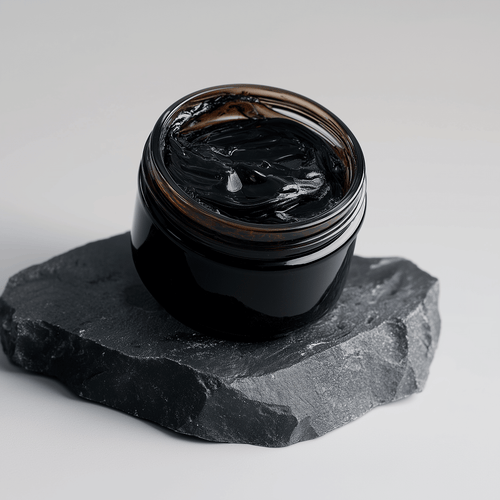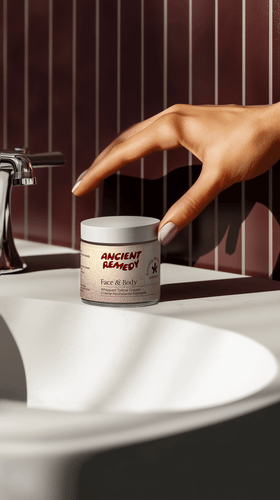
Does Collagen Powder Really Work? Science, and Alternatives
Collagen powder has become a staple in the health and beauty industry, promising smoother skin, stronger joints, and even reduced injuries. But does it live up to the hype? While some studies suggest collagen can deliver on these promises, skeptics argue there may be a better—and more affordable—way to achieve similar results. Let’s explore the evidence, including a closer look at glycine, a key component of collagen that might hold the secret to its effectiveness.
What Is Collagen Powder?
Collagen is a structural protein that your body naturally produces. It’s essential for maintaining the integrity of your skin, joints, bones, tendons, and other connective tissues. Up until about age 30, your body produces collagen abundantly, giving you firm skin, strong nails, and healthy joints.
However, collagen production decreases with age, leading to visible signs of aging like wrinkles, sagging skin, and even cellulite. Declining collagen can also contribute to joint pain and stiffness. Collagen powder supplements are marketed as a way to counteract this decline by replenishing collagen levels. Most supplements use hydrolyzed collagen (collagen peptides), which are broken down into smaller amino acids for easier absorption.
The Role of Glycine in Collagen’s Effects
Collagen powder is often praised for improving skin elasticity and strengthening joints, but the mechanism behind these benefits might not lie in collagen itself—it could be due to glycine, one of its main components.
About 30% of collagen is made up of glycine, an amino acid critical for maintaining and repairing connective tissues like skin, tendons, and ligaments. Glycine plays a significant role in promoting wound healing, supporting antioxidant production (via glutathione synthesis), and maintaining healthy skin and joint function.
Could Glycine Be the Real Star?
If glycine is responsible for many of the positive effects attributed to collagen, it raises an important question: Is collagen supplementation necessary, or could glycine alone provide the same benefits?
Consider this:
- Glycine is widely available as a standalone supplement and is significantly cheaper than collagen powder.
- Glycine has a variety of benefits beyond those associated with collagen, including promoting better sleep, reducing inflammation, and supporting metabolic health.
Supplementing with glycine directly could be a more cost-effective and efficient way to achieve similar results for skin, joints, and tendons.
The Science: Collagen vs. Glycine
Proven Benefits of Collagen
Studies have shown that collagen supplementation can:
- Improve skin elasticity and hydration
- Reduce joint pain and stiffness
- Support muscle recovery and reduced soreness
However, as Liam, a skeptic, points out:
🗨️ "Collagen supplementation is popular, but recent studies challenge its direct role in connective tissue synthesis. Some of these benefits might simply come from the high glycine content in collagen."
Skeptical Findings
Liam a science-based fitness coach and health expert who delves deep into the research behind popular supplements highlights findings from top protein metabolism studies (PMIDs: 39086044 & 37202878) that show collagen does not directly stimulate connective tissue synthesis. Instead, its benefits may come from providing building blocks—like glycine—that your body uses to repair tissues.
Collagen’s Downsides
- Collagen is a low-quality protein for muscle growth because it lacks leucine, the amino acid most responsible for stimulating muscle protein synthesis.
- Collagen powder can be expensive, with prices far higher than pure glycine supplements.
Given this, Liam suggests:
🗨️ "If glycine is the key to collagen’s effects, why not supplement glycine directly? It’s cheaper and has broader benefits."
Why Glycine Might Be a Smarter Choice
Here’s why glycine supplementation might be more practical than collagen:
- Cost-Effectiveness: Glycine supplements are far cheaper than collagen powder.
- Targeted Benefits: Glycine supports connective tissue health, antioxidant production, and even better sleep, making it a versatile option.
- Flexibility: Glycine can be easily added to your diet through standalone supplements or glycine-rich foods like gelatin and bone broth.
While collagen powder contains glycine along with other amino acids, there’s no strong evidence that you need all the components of collagen to achieve its benefits. Focusing on glycine could be a simpler and more affordable approach.
Should You Use Collagen Powder?
The answer depends on your goals and budget:
- If you’re looking for a general, convenient supplement for skin and joint health, collagen powder might work for you.
- However, if you want a more affordable and scientifically grounded option, consider supplementing with glycine instead.
As the debate continues, what’s clear is that more research is needed to determine whether collagen’s benefits come from the protein itself or from key components like glycine. Until then, exploring glycine supplementation could be a wise and economical choice.
Takeaway: The Case for Glycine Over Collagen
Collagen powder has gained immense popularity for its perceived benefits, but the science suggests glycine may be the unsung hero behind these effects. With glycine’s affordability and versatility, it might be time to rethink collagen supplements and go straight to the source.
Whether you choose collagen, glycine, or both, remember that supplements are only part of the equation. A balanced diet, regular exercise, and proper hydration are essential for healthy skin, joints, and overall well-being.





